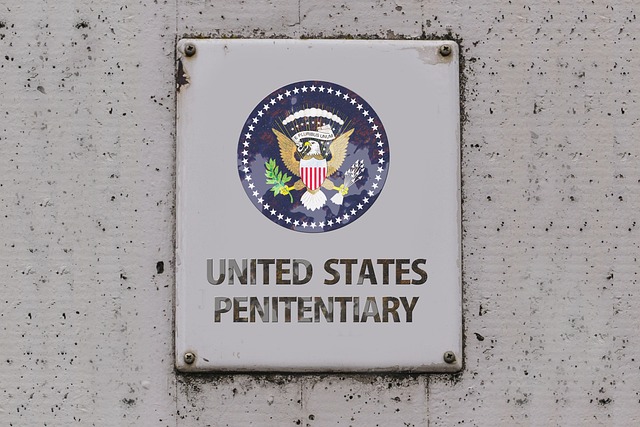Corporate DUI Awareness Workshops are gaining importance in today's digital era as companies prioritize employee safety regarding alcohol consumption and driving risks. These workshops educate staff about DUI impacts, legalities, company policies, and personal well-being, fostering a culture of responsibility. With strict DUI policies, violations can have severe consequences. Alternative safe transit options like carpooling, bike-sharing, and electric scooters complement these workshops by reducing traffic congestion and carbon emissions while enhancing individual safety. Comprehensive workshops, paired with post-workshop support, engage employees through interactive elements and real-life case studies. Safe Ride Programs, including partnerships with taxi services and designated driver programs, further promote responsible drinking and driving. Technology advancements like real-time tracking systems and ADAS, integrated with Corporate DUI Awareness Workshops, enhance safety across all users. Successful examples in major corporations and urban areas demonstrate the effectiveness of these alternative transit initiatives in improving road safety and sustainability.
In today’s world, where corporate responsibility is paramount, understanding and mitigating the risks associated with impaired driving among employees is crucial. This article explores alternative transit safe options, delving into key areas that contribute to a comprehensive approach to tackling Corporate DUI (Drunk Driving Under Influence) policies and their impact. We discuss the need for innovative transportation solutions, effective workshop planning, best practices in ride programs, technology’s role, and present inspiring case studies, all with a focus on enhancing corporate DUI awareness workshops.
- Understanding Corporate DUI Policies and Their Impact
- The Need for Alternative Transit Options
- Planning Effective DUI Awareness Workshops
- Implementing Safe Ride Programs: Strategies and Best Practices
- Technology's Role in Enhancing Safety Measures
- Case Studies: Successful Alternative Transit Initiatives
Understanding Corporate DUI Policies and Their Impact

In today’s digital era, corporate organizations are recognizing the importance of implementing robust Corporate DUI Awareness Workshops to mitigate risks associated with employee alcohol consumption and driving. These workshops play a pivotal role in fostering a culture of responsibility and safety within companies. By delving into the impacts of driving under the influence (DUI), these educational sessions equip employees with crucial knowledge about legal implications, company policies, and personal well-being. Understanding the potential consequences, both for themselves and their organizations, serves as a powerful deterrent.
The impact extends beyond individual safety; it influences the overall corporate image and liability. Many companies have strict DUI Policies in place, and violations can lead to severe repercussions, including legal action, disciplinary measures, and damage to employer-employee relations. Therefore, these workshops are not just about compliance but also about promoting a responsible and ethical workplace culture, ensuring that employees make informed decisions that protect them and their employers alike.
The Need for Alternative Transit Options

In today’s fast-paced world, the need for alternative transit options has become increasingly apparent, especially with growing corporate DUI awareness. Traditional modes of transportation often fall short in catering to the diverse needs of commuters, leading to congestion and safety concerns. This is particularly relevant in urban areas where public transport systems can be overwhelmed during peak hours.
Alternative transit safe options offer a promising solution. By encouraging the use of methods like carpooling, bike-sharing programs, and electric scooters, cities can alleviate traffic congestion and reduce carbon emissions. Moreover, these alternatives promote individual safety by offering more direct routes and less exposure to hazardous road conditions, a factor that becomes increasingly important as corporate DUI awareness workshops highlight the risks associated with impaired driving.
Planning Effective DUI Awareness Workshops

Planning effective Corporate DUI Awareness Workshops is paramount in fostering a safe and responsible workplace culture. These workshops should be tailored to educate employees about the dangers of driving under the influence, not just legally but also from a safety perspective. Engaging interactive sessions, real-life scenarios, and guest speakers who share personal experiences can significantly impact learning outcomes.
Workshops should cover key topics like understanding blood alcohol levels, recognizing signs of intoxication, and promoting designated drivers or alternative transit options. Providing resources for post-workshop support, such as online refresher courses or access to counseling services, ensures a holistic approach to DUI prevention.
Implementing Safe Ride Programs: Strategies and Best Practices

Implementing Safe Ride Programs is a proactive approach for companies to foster Corporate DUI Awareness and promote responsible drinking. These programs offer a range of strategies, including providing employees with alternative transportation options after work events or social gatherings. One best practice is partnering with local taxi services or ride-sharing apps to offer discounted rates during designated hours. Additionally, implementing a volunteer program where colleagues sign up to be designated drivers can significantly reduce the risk of impaired driving.
Educational workshops play a vital role in these initiatives. Corporate DUI Awareness Workshops can educate employees about the dangers of drinking and driving, providing them with the knowledge to make responsible decisions. These workshops can also cover topics like identifying signs of intoxication and promoting a culture of safety within the workplace. By combining practical measures and educational efforts, companies can effectively navigate the challenge of ensuring employee safety during social events while adhering to legal obligations.
Technology's Role in Enhancing Safety Measures

In today’s digital era, technology plays a pivotal role in enhancing safety measures across various sectors, and transportation is no exception. Innovative solutions are revolutionizing the way we navigate our cities, offering alternative transit options that prioritize safety. From real-time tracking systems to advanced driver assistance technologies (ADAS), these tools are becoming integral parts of public transport infrastructure. By providing accurate data on vehicle location, speed, and potential hazards, technology enables operators to make informed decisions swiftly, ultimately reducing the risk of accidents.
Furthermore, integrating AI and machine learning algorithms in transit management enhances safety even further. These algorithms can predict and identify patterns in traffic flow, allowing for proactive measures during peak hours or in areas prone to congestion. Moreover, the integration of Corporate DUI Awareness Workshops into these systems ensures that passengers and drivers alike remain informed about responsible drinking and driving practices. Such initiatives contribute to a culture of safety, encouraging everyone to adopt sustainable and secure travel habits.
Case Studies: Successful Alternative Transit Initiatives

Alternative transit initiatives have proven successful in various communities, offering innovative solutions to reduce traffic congestion and promote safer commuting. One standout example is the implementation of Corporate DUI Awareness Workshops in major corporations. These workshops focus on educating employees about the dangers of drunk driving and promoting responsible riding options. By fostering a culture of awareness, companies have seen significant reductions in after-work drinking and subsequent driving, leading to safer roads for everyone.
Another notable case involves the introduction of micro-mobility options like electric scooters and bikes in urban areas. Cities such as Paris and Berlin have witnessed positive outcomes with these shared mobility programs, encouraging shorter trips and reducing reliance on personal vehicles. This shift not only minimizes traffic but also contributes to better air quality and public health. These examples highlight that alternative transit initiatives can be tailored to fit diverse urban landscapes, enhancing both safety and sustainability.
In light of the above discussions, it’s clear that alternative transit safe options are not just desirable but essential. By understanding corporate DUI policies, planning effective workshops, implementing best practices for safe ride programs, leveraging technology, and studying successful initiatives, organizations can significantly reduce impaired driving risks. Embracing these strategies not only promotes employee safety but also fosters a culture of responsible decision-making, ultimately contributing to safer communities.






